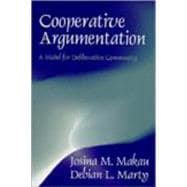| Prefac and Acknowledgements | ix | ||||
| Introduction | 1 | (5) | |||
|
6 | (1) | |||
|
7 | (38) | |||
|
7 | (3) | |||
|
10 | (2) | |||
|
12 | (4) | |||
|
16 | (10) | |||
|
17 | (1) | |||
|
18 | (3) | |||
|
21 | (5) | |||
|
26 | (7) | |||
|
27 | (1) | |||
|
28 | (1) | |||
|
29 | (1) | |||
|
30 | (3) | |||
|
33 | (2) | |||
|
35 | (3) | |||
|
36 | (2) | |||
|
38 | (2) | |||
|
40 | (1) | |||
|
40 | (2) | |||
|
42 | (3) | |||
|
45 | (36) | |||
|
47 | (7) | |||
|
48 | (4) | |||
|
52 | (2) | |||
|
54 | (5) | |||
|
55 | (1) | |||
|
55 | (1) | |||
|
56 | (1) | |||
|
56 | (3) | |||
|
59 | (6) | |||
|
65 | (1) | |||
|
66 | (3) | |||
|
69 | (1) | |||
|
70 | (8) | |||
|
78 | (3) | |||
|
81 | (30) | |||
|
81 | (2) | |||
|
83 | (5) | |||
|
88 | (4) | |||
|
92 | (1) | |||
|
93 | (2) | |||
|
95 | (2) | |||
|
97 | (3) | |||
|
100 | (5) | |||
|
105 | (2) | |||
|
107 | (1) | |||
|
108 | (3) | |||
|
111 | (50) | |||
|
111 | (4) | |||
|
115 | (3) | |||
|
118 | (1) | |||
|
119 | (3) | |||
|
122 | (9) | |||
|
123 | (1) | |||
|
124 | (1) | |||
|
125 | (3) | |||
|
128 | (1) | |||
|
129 | (1) | |||
|
130 | (1) | |||
|
131 | (1) | |||
|
132 | (7) | |||
|
139 | (13) | |||
|
140 | (1) | |||
|
140 | (3) | |||
|
143 | (9) | |||
|
152 | (2) | |||
|
154 | (3) | |||
|
157 | (4) | |||
|
161 | (34) | |||
|
163 | (1) | |||
|
164 | (6) | |||
|
165 | (2) | |||
|
167 | (1) | |||
|
168 | (2) | |||
|
170 | (4) | |||
|
174 | (14) | |||
|
174 | (6) | |||
|
180 | (1) | |||
|
181 | (1) | |||
|
182 | (6) | |||
|
188 | (2) | |||
|
190 | (2) | |||
|
192 | (3) | |||
|
195 | (44) | |||
|
196 | (3) | |||
|
199 | (4) | |||
|
203 | (3) | |||
|
206 | (2) | |||
|
208 | (7) | |||
|
208 | (3) | |||
|
211 | (2) | |||
|
213 | (2) | |||
|
215 | (6) | |||
|
215 | (1) | |||
|
216 | (2) | |||
|
218 | (3) | |||
|
221 | (2) | |||
|
223 | (5) | |||
|
228 | (5) | |||
|
233 | (1) | |||
|
234 | (1) | |||
|
235 | (4) | |||
|
239 | (45) | |||
|
240 | (1) | |||
|
241 | (3) | |||
|
244 | (1) | |||
|
245 | (15) | |||
|
246 | (1) | |||
|
247 | (5) | |||
|
252 | (1) | |||
|
253 | (1) | |||
|
254 | (2) | |||
|
256 | (1) | |||
|
257 | (1) | |||
|
258 | (1) | |||
|
259 | (1) | |||
|
260 | (18) | |||
|
261 | (5) | |||
|
266 | (3) | |||
|
269 | (9) | |||
|
278 | (1) | |||
|
279 | (1) | |||
|
280 | (4) | |||
|
284 |








